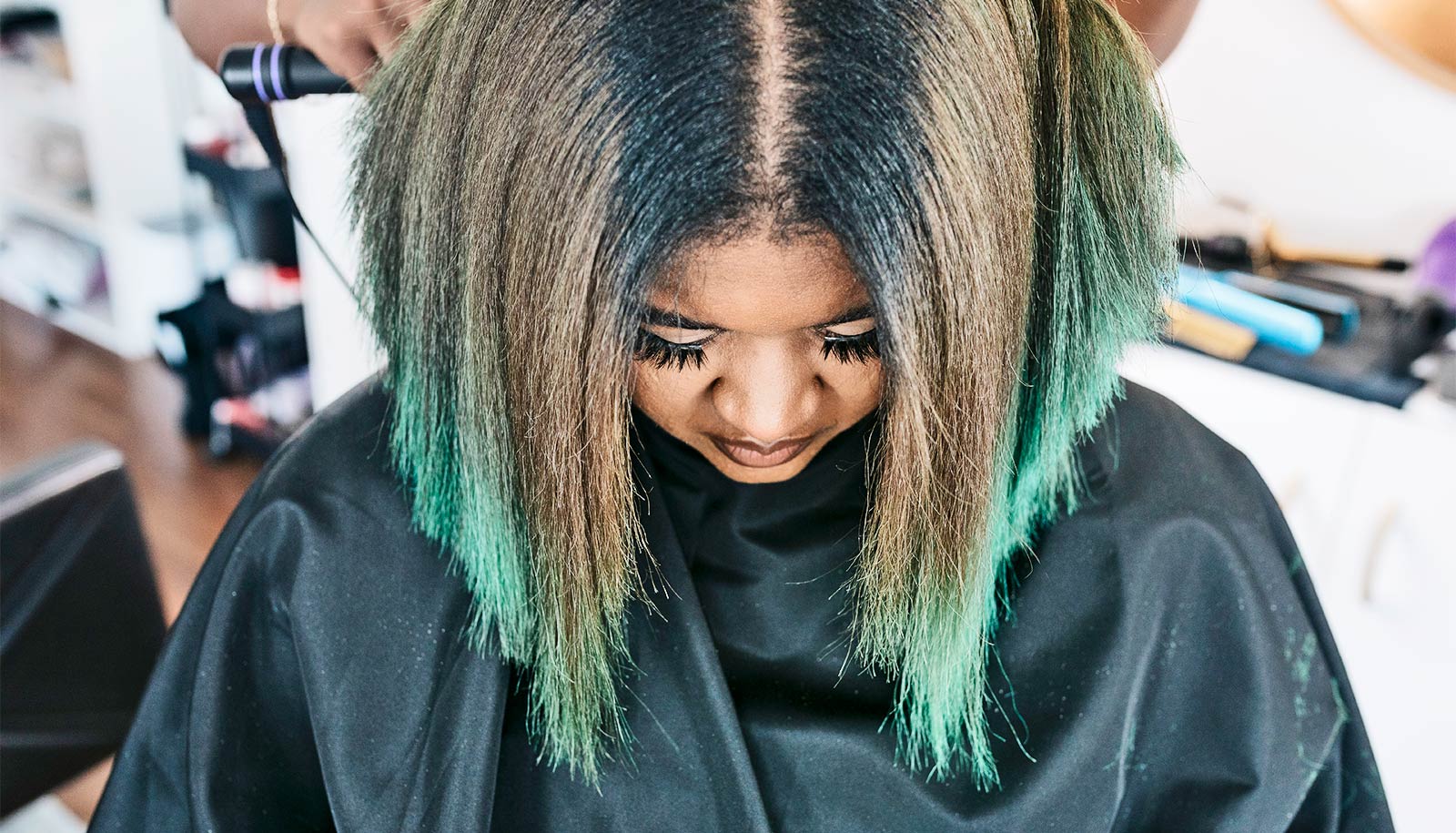Long-term use of chemical hair relaxers by postmenopausal Black women is associated with an increased risk of uterine cancer, a new study shows.
Chemical hair relaxers are heavily marketed to, and commonly used by, Black women to straighten curly or tightly coiled hair. These products are only loosely regulated and are known to contain potentially harmful ingredients, including chemicals known as endocrine disruptors which can be absorbed via inhalation or through the skin.
Prior studies have linked these chemicals to a wide range of women’s reproductive health outcomes.
Compared to women who never or rarely used hair relaxers, Black women who reported using hair relaxers more than twice a year or for more than five years had a greater than 50% increased risk of uterine cancer.
“Our study suggests that moderate and heavy use of chemical hair relaxers may be associated with higher risk of uterine cancer among postmenopausal Black women. In addition, there are major racial disparities in uterine cancer. Compared to non-Hispanic white women, Black women have higher rates of aggressive subtypes of uterine cancer and are nearly twice as likely to die from their disease,” says corresponding author Kimberly Bertrand, associate professor of medicine at Boston University Chobanian & Avedisian School of Medicine.
The researchers asked nearly 45,000 women in Black Women’s Health Study (BWHS) who had no prior history of cancer and an intact uterus about their past use of chemical hair relaxers. They then followed the women for up to 22 years and compared rates of uterine cancer among women who reported frequent or long-term use of hair relaxers to rates among women who never or rarely used hair relaxers.
They found that, among postmenopausal women, rates of uterine cancer were statistically significantly higher for those who commonly used hair relaxers even after adjustment for other potential risk factors.
These findings highlight the importance of continued research regarding the potential adverse health effects of exposure to chemical hair relaxers and their constituents, the researchers say.
“Black women are often underrepresented in health research and may have unique exposures that contribute to disparities in disease. This study fills an important gap in knowledge about the potential health effects of hair relaxer use, which is very common in Black women,” says Bertrand who also is an epidemiologist at Boston University’s Slone Epidemiology Center.
The researchers hope these results will raise awareness of the potential toxic effects of these products and promote efforts to reduce exposure.
“Importantly, identification of safer alternatives to straightening hair, stricter regulation of cosmetic products, and policies to prohibit discrimination against natural hair such as the CROWN Act could represent important steps toward reducing racial disparities in uterine cancer.”
The findings appear in the journal Environmental Research.
The National Institutes of Health and the Cancer Research Foundation supported the work.
Source: Boston University


